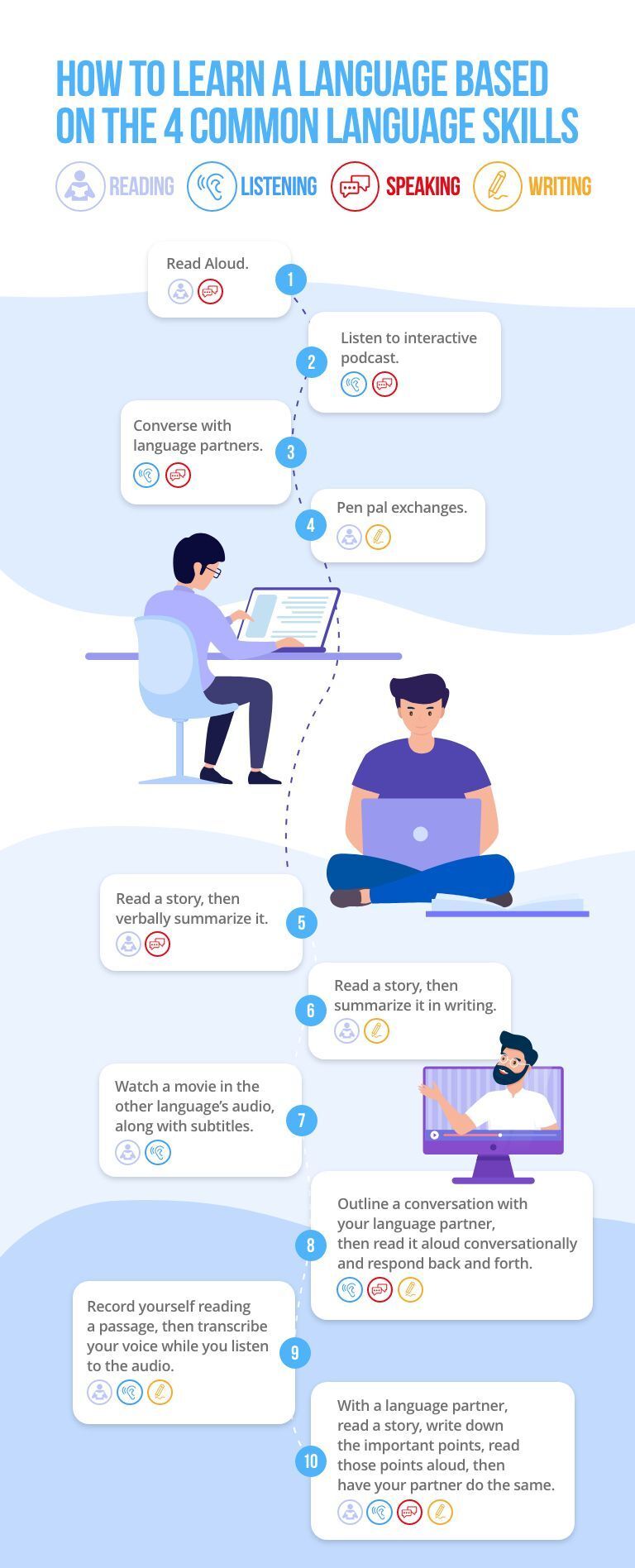Tips on how to learn a language in lockdown
Would you believe me if I told you that now, more than ever, is a great opportunity to dust off your language books and brush up on your foreign language skills? Yes, foreign exchanges, tandems, and evening or weekend classes are currently on hold…but you don’t have to be. Thanks to the abundance of resources online, paired with that extra free hour or two that many of us, stuck at home, have on our hands, starting a new language from scratch or sharpening up your second language skills has never been easier. In this article, I’m going to share with you my top tips for learning a foreign language in lockdown.
1 – Keep it varied
One thing about home is that it’s always the same: same walls, same floors, same furniture…and we all know that too much of the same can be tiresome. Take this opportunity to spice up your language learning by using a variety of resources. From books, films, podcasts and apps to free online courses, you can make your learning experience different each time to enhance and diversify your skills, as well as add an extra splash of colour to your day.
2 – Netflix, chill…and Netflix
Netflix really is a wonderful resource (and when I say Netflix, this can also refer to any other kind of media that gives you access to movies, tv series or documentaries – maybe even your own dvd collection). I have written about the joys of Netflix and language learning in other articles, simply because it’s an accessible, enjoyable and dynamic way to learn. And let’s face it – life is challenging at the moment and we have little or no access to our normal lives, so let’s take full advantage of the accessible ways we can learn. Never before have we had access to such a wide variety of television in an equally wide variety of languages. You can watch your favourites with foreign language subtitles and not even notice your learning…Sit back, relax and enjoy the show.
3 – Stay interactive
If you are someone who learns best in the company of others, why not try out an e-learning course? Online, you can find an array of structured language classes and relaxed e-meet ups if you want to practice your oral skills. Practicing your second language with others face to face is a vital part of improving your fluency. Also, being part of a community or group can make us feel less alone and more ‘normal’ in these very strange and unprecedented times. You can even create your own study and revision materials to reinforce what you learn via an online course. For instance, a tool like Knowt lets you generate AI flashcards to improve information retention and recall.
4 – Get fit and ‘study’
Since lockdown started, home has become the new gym and many fitness studios, influencers and yogis are using Instagram and YouTube to make sure we keep moving and keep healthy. You’ll be glad to know - especially if you’re currently juggling every aspect of your personal and family life at one time - that you can save time while being super productive by doing your usual workout in another language. For example, if English is your second language, why not do your next HIIT or Vinyasa flow with an English speaking instructor? That way, through next level multitasking, you can exercise your body and your language skills at the same time.
5 – Learn with your children
This tip is for parents at home with young children. While the kids are not going to school, many of us have to be parents and educators at the same time. Playing these different roles is tiring, time consuming and even stressful…but it can also be enjoyable and productive for you and your little one(s). If you have very young kids, I suggest reading stories or nursery rhymes in your second language. It’s an easy way to refresh your basic vocabulary while keeping the little ones entertained or helping them to fall asleep. If you have a toddler at home who loves watching cartoons, access these in your second language (on YouTube or Netflix) and while the little ones are enjoying the pictures and sounds, you’re learning every day communication skills.
If your kids are a little older, encourage them to bake a tasty treat with you that can be enjoyed together as a snack. Surprise them with a simple and delicious recipe, that you can find easily on YouTube, and make sure it’s in your second language. While the children focus on the end product, you can focus on some new vocabulary.
Related stories










